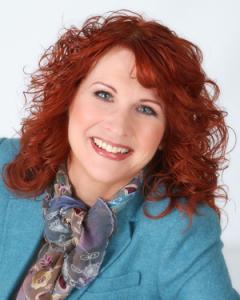Caregivers feel alone in the daily struggle to hold it together, hiding the fact that they are exhausted?drowning in responsibility and dreaming of quitting.
DENVER, CO, USA, June 30, 2021 /EINPresswire.com/ -- Family caregivers remain unrecognized and unappreciated for their efforts to help aging parents, spouses, and other family members remain living at home. In addition to household tasks, supporting medical care, and balancing family relationships, many adult caregivers work full- or part-time and care for their own families.
Looking Back at Life Before Caregiving
There isn?t a single person on this planet?besides babies or children?who hasn?t looked back and reminisced about living a carefree or more simple life. Adulthood brings independence and the adventures of building a career, marriage, having children, buying a house, and other milestones.
When creating a bucket list or planning for the future, accepting the role of being a caregiver for an aging parent or a spouse is never included. As a result, few aging adults create a plan for times likely to arise?sickness, physical disability, and death.
Yet, looking back at life before caregiving, what person in their right mind would ask for mounting responsibilities, increasing stress, time pressures, dealing with difficult family members and the healthcare system, and years of ongoing self-sacrifice? In reality, the daughter, son, or spouse who accepts caregiving responsibilities becomes entangled in unimaginable situations.
It?s these unexpected situations that have caregivers questioning their involvement in caring for aging parents and asking the question, ?can I quit?? Days exist where one problem after another seems to arise, and there is no relief in sight.
Parental Expectations for Care Differ by Culture
Depending on the culture in which one is raised, elderly parents can have different expectations for the involvement and commitment of adult children. In some cultures, becoming a caregiver for aging parents is never questioned.
In a recent interview on The Caring Generation show called Caring for Dad, Wilson asked Dr. Monika Lopez-Anuarbe, about the differences in caregiving between Hispanic and other cultures.
According to Lopez-Anuarbe, ?So what ends up happening is that many times there?s only like one primary caregiver that is overburdened but actually does feel ashamed to even say that they are. And in fact, in Spanish, the word burden does not exist. So how do you now, express something that, you know, where the dictionary is not helping. Right? The more similar word to burden is load or like heavy load, and nobody wants to describe caring for their mom like they?re heavy Right? So that?s not?so there?s a cultural imperative that?s a no-no. You can?t really complain that you?re taking care of your family members, and there?s no word for it either."
In Hispanic and other cultures the vocabulary may not have been designed to accommodate the idea of caregiving or the associated stress that is documented in research. Because of this conversational gap, families must make extra efforts to initiate talking about care needs within the family.
The Importance of Talking about Caregiving Within the Family
Initiating family conversations about caregiving can be challenging when adult children, aging parents, or spouses resist discussions. Poor communication about care issues within the family is one reason caregivers become frustrated and want to quit or give up. Concerns about the time commitment required to provide care and a lack of appreciation are other reasons why caregivers become exhausted and want to end care responsibilities.
Navigating discussions where caregivers and the care recipient have differences of opinions can feel uncomfortable and result in avoiding conversations or denying the need to make decisions. While caregiving is about the needs of the person needing care, caring for aging parents or a spouse impacts the entire family.
Families can be emotionally pulled apart by the care needs of a single individual. In addition, families become divided when discussions occur individually and not collectively within the family. A positive relationship between the primary caregiver and the care receiver can support family caregiving discussions.
Siblings or other family members?who may be less involved in providing care?can cause significant distress when they offer opinions or attempt to divide the family. An option to support talking about caregiving within the family is to engage an independent eldercare consultant.
Eldercare Consultations Can Support and Guide Family Care Conversations
As an eldercare consultant, Wilson guides families through telephone or virtual online consultations to establish common goals within the family. Discussions include a needs assessment that identifies current and future care needs and the ability and interest of family members to provide care.
Wilson also discusses a broad range of services and supports for care receivers and caregivers to create a family care plan that works for today and the future. The aging parent or the person needing care is encouraged to express desires for care and be open to accepting outside family assistance when beneficial and necessary.
An eldercare consultation with Wilson offers families the ability to discuss what may be an uncomfortable topic and make a concrete plan to move forward with the best interest of the care recipient at heart. Twenty years of working with older adults and families in various roles is the foundation for Wilson?s company supporting family caregivers and corporations seeking to support working caregivers.
Caregiver Support for Individuals, Corporations, and Groups
Wilson?s mission to reach one million caregivers worldwide is supported by her passion for working with groups and corporations to provide keynote speaking sessions?live or online, webinars, and unique online or on-site education programs. In addition, she supports family caregivers and aging adults through her caregiving library, videos, The Caring Generation podcast, and 1:1 telephone or online eldercare consultations.
Contact Wilson for more information about caregiver support, resources, and education by emailing Inquiry_For_Pamela@PamelaDWilson.com or calling +1 303-810-1816.
Pamela D. Wilson
Pamela D. Wilson, Inc.
+1 303-810-1816
Inquiry_For_Pamela@PamelaDWilson.com
Visit us on social media:
Facebook
Twitter
LinkedIn




